AITA for signing my kids up for public school behind my wife’s back?
Family decisions around education can spark intense debate, especially when parents hold differing philosophies. In this case, a 36-year-old dad, frustrated by his wife’s insistence on homeschooling their 6-year-old twins, took matters into his own hands by enrolling them in public school—albeit behind her back.
His wife, a self-proclaimed “crunchy mom,” has been steadfast in her belief that mainstream schooling is toxic and that a more holistic, natural approach is best for their children. However, after witnessing the twins’ lackluster progress during a summer of unsystematic learning and a flurry of unschooling activities, he felt that public school would offer them the structure and social interaction they desperately needed.
Despite his decision leading to a heated family conflict, the twins’ positive first-week experience at school raised important questions about balancing parental roles and ensuring a well-rounded education.
In this post, we explore the clash between two very different parenting styles and the fallout of one parent making a unilateral decision for the sake of the children’s well-being. The dad’s move, meant to secure a stable and enriching environment for the twins, has sparked an emotional debate about trust, responsibility, and what truly constitutes the “best” education for children in today’s world.
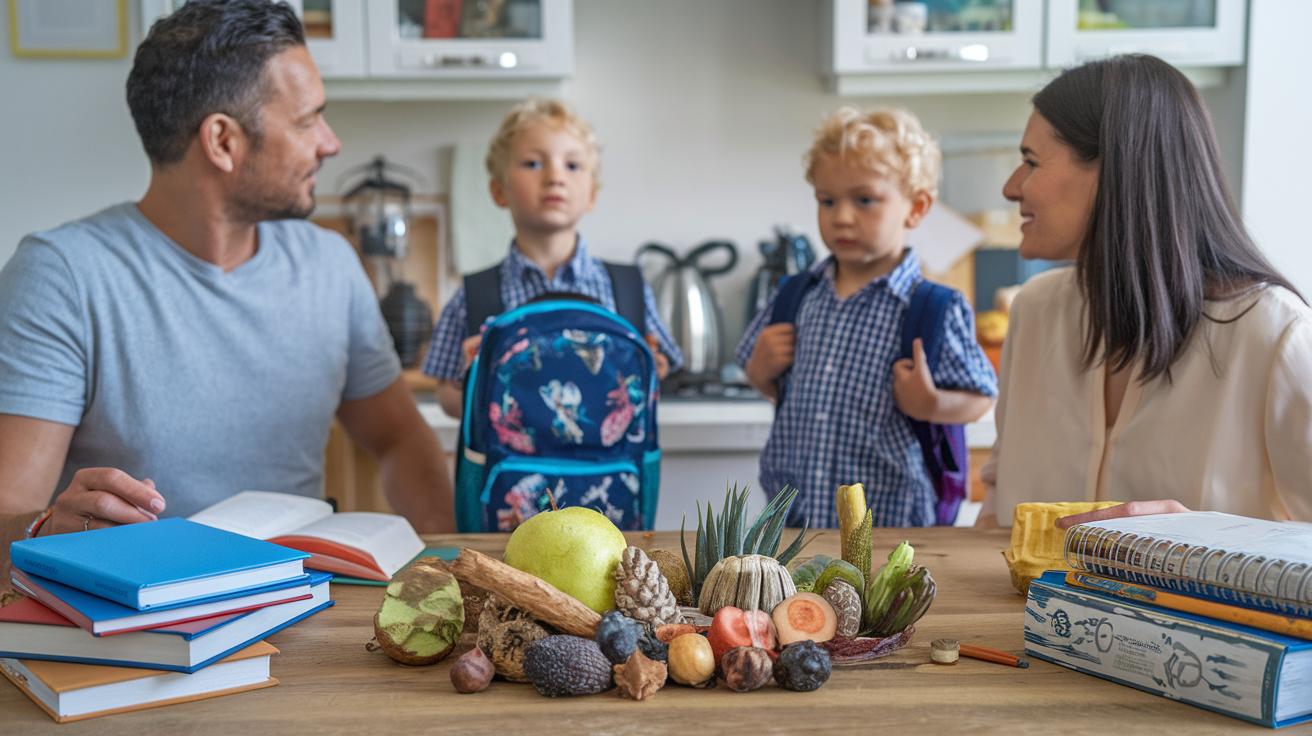
‘AITA for signing my kids up for public school behind my wife’s back?’
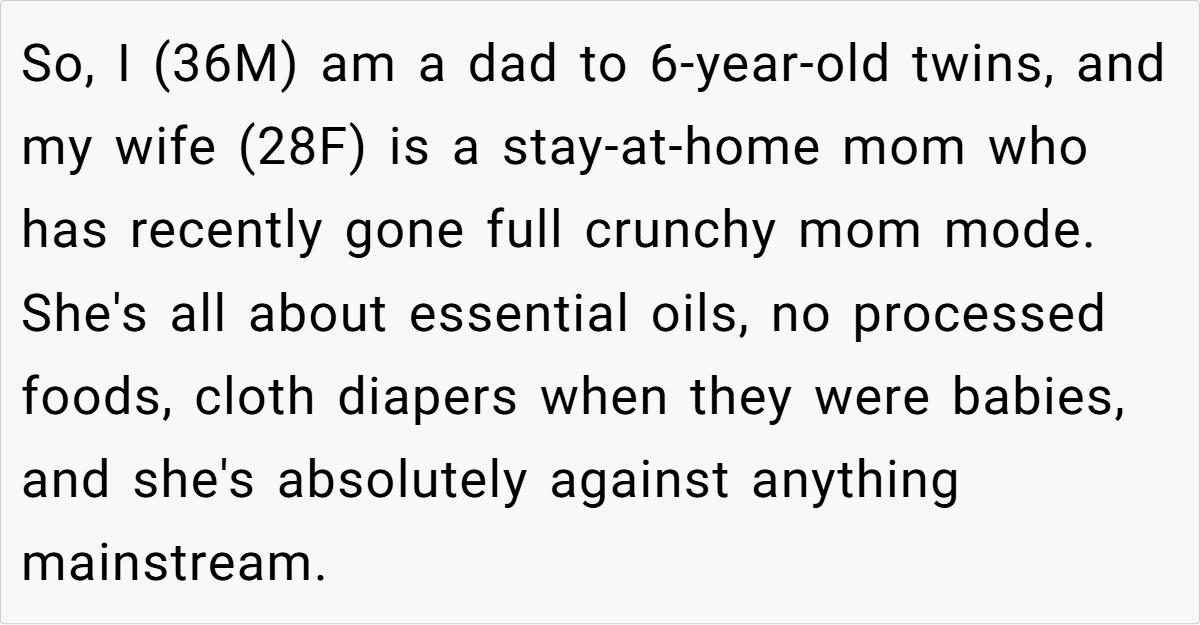
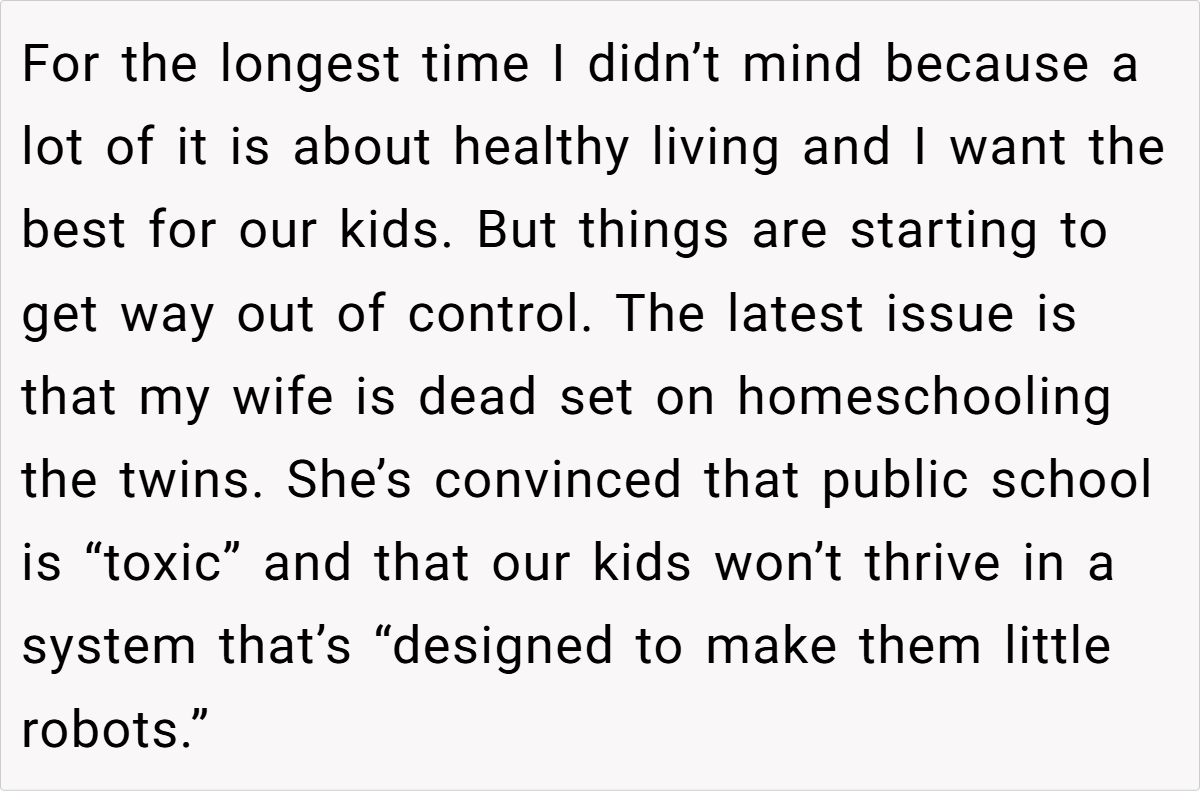
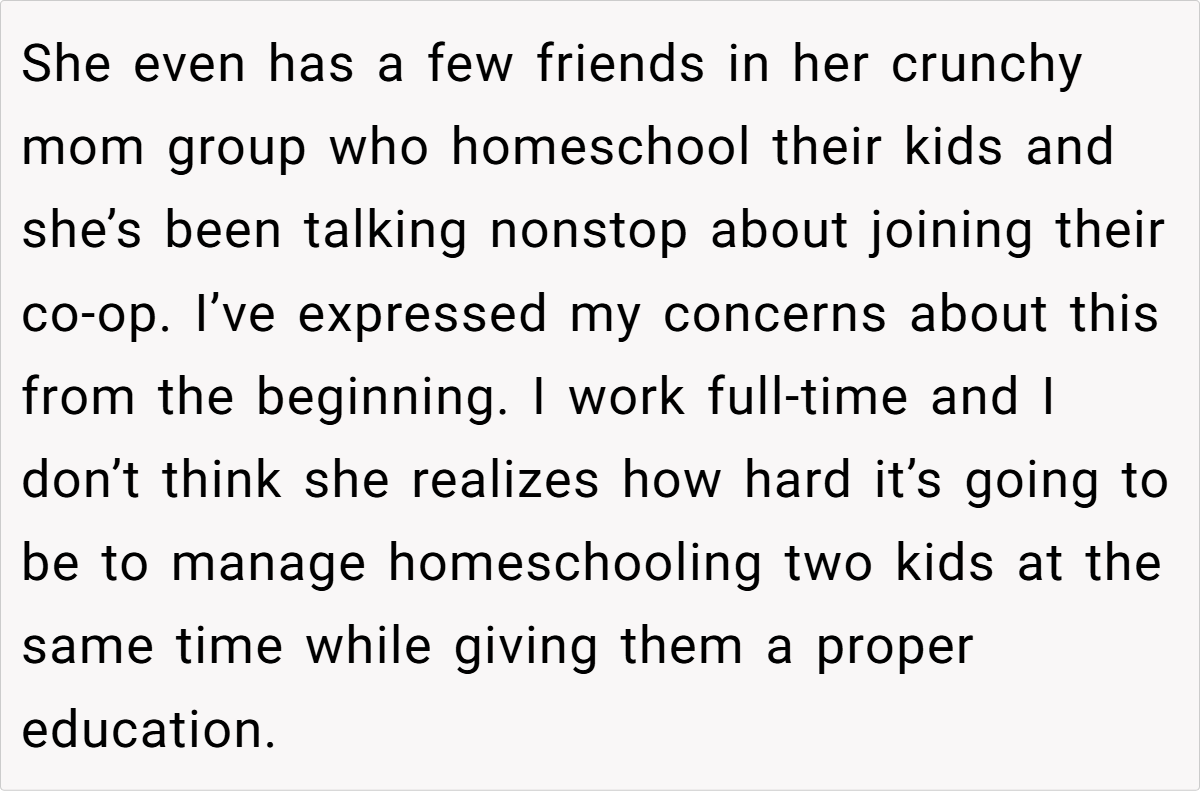
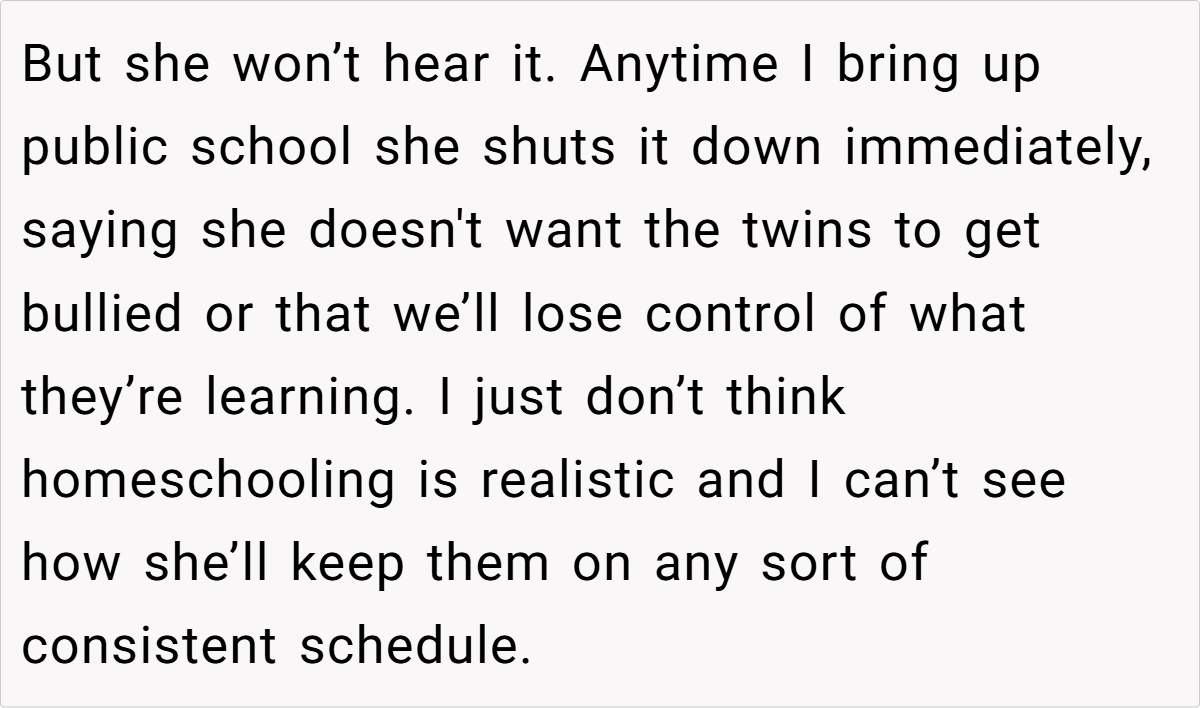
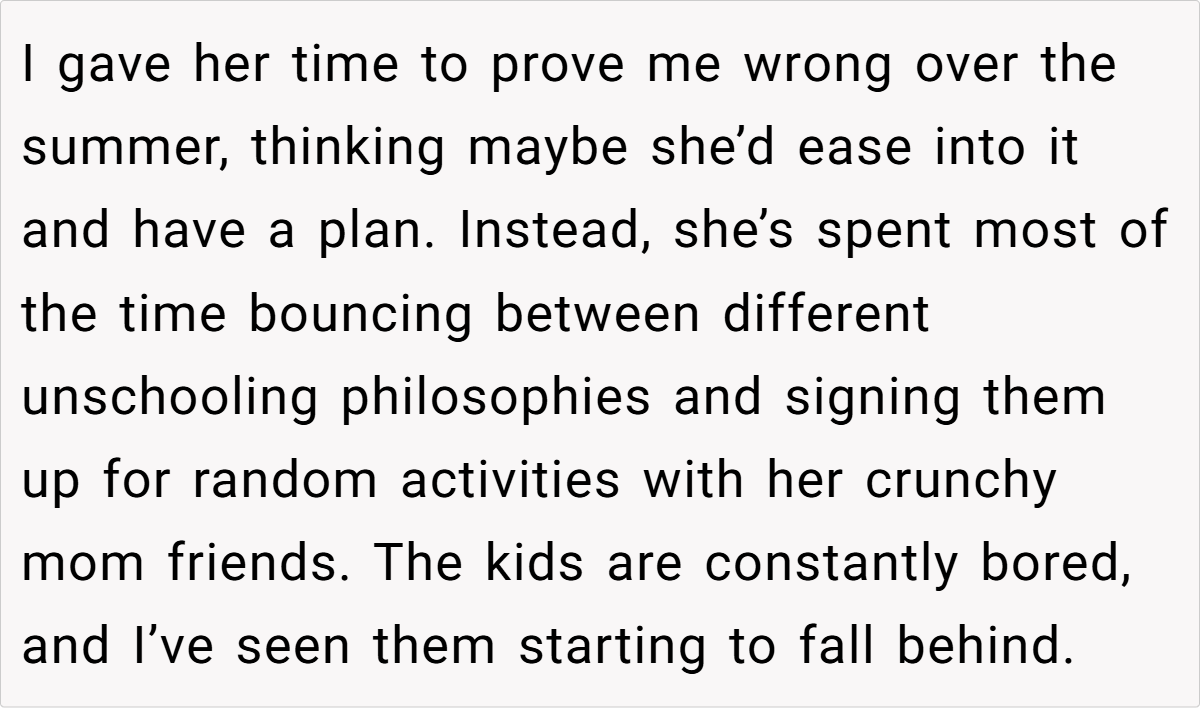
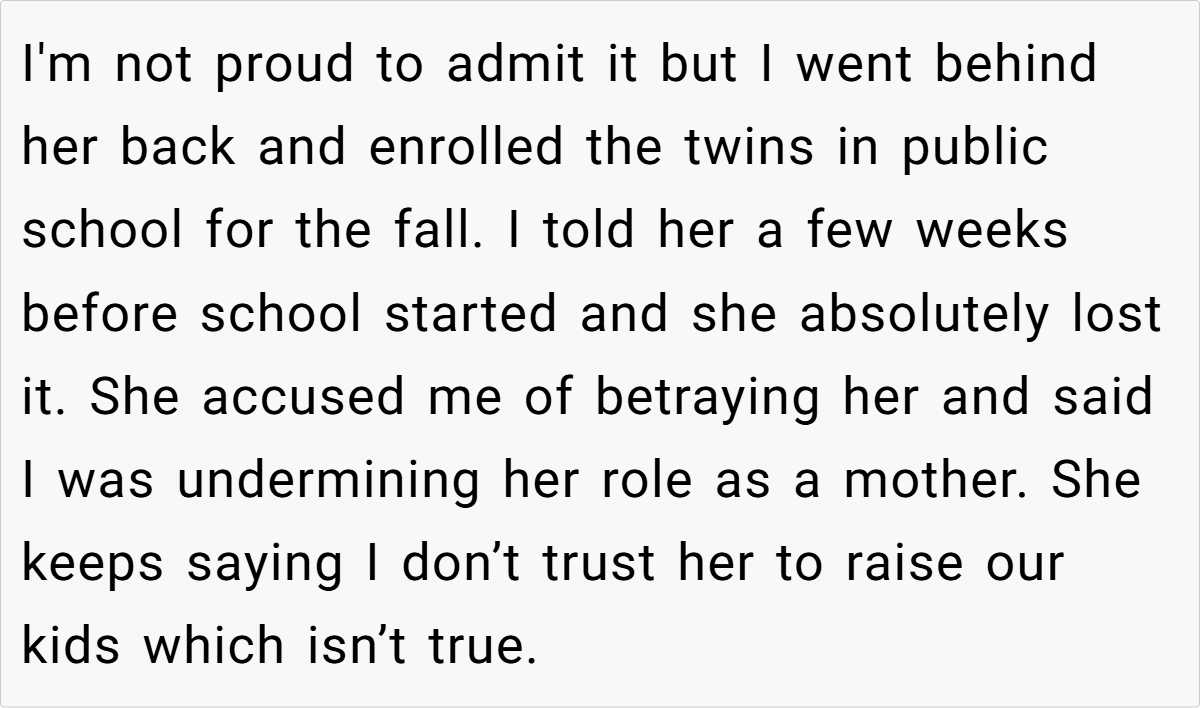
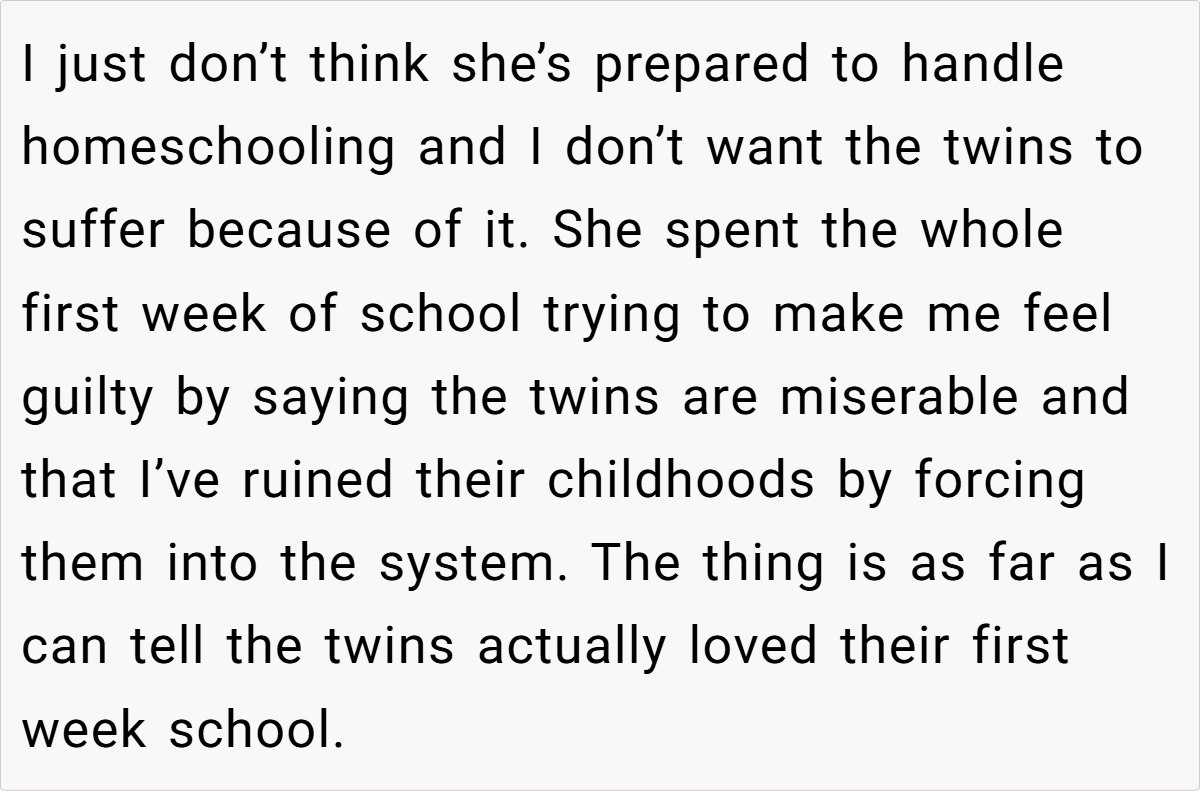
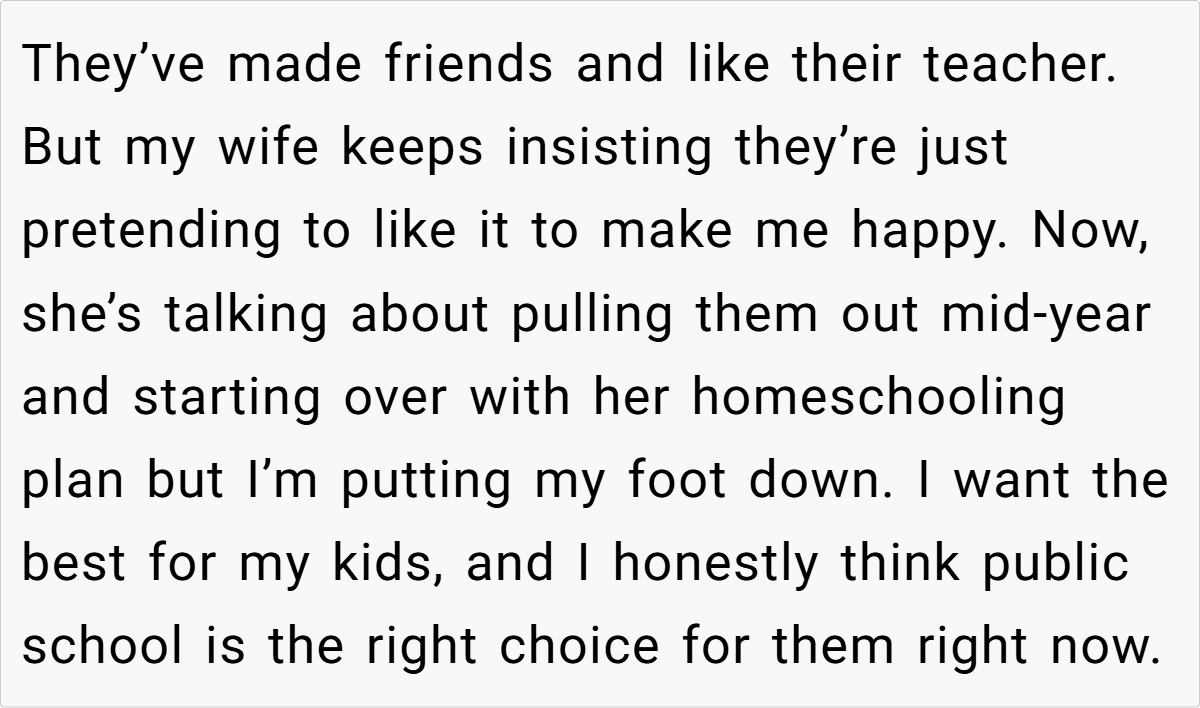
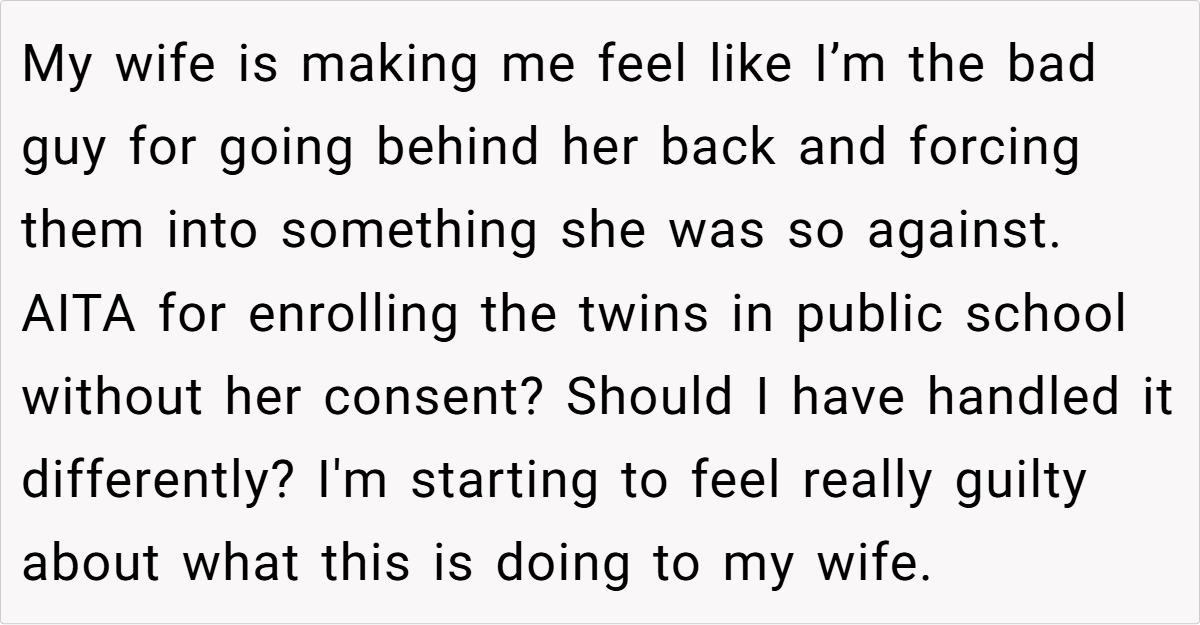
Parenting expert Dr. Laura Markham emphasizes that educational decisions, much like other critical aspects of parenting, should ideally be made collaboratively to ensure that all family members feel heard and valued. “When one parent feels compelled to override the other’s deeply held beliefs without prior discussion, it can lead to long-term feelings of mistrust and resentment,” she explains.
In this scenario, the father’s decision to enroll the twins in public school was driven by his concerns over the lack of structure and the potential academic and social setbacks resulting from unsupervised unschooling. Dr. Markham notes, “Children benefit immensely from a balanced approach where both structure and creativity are encouraged. Public schools can provide the social engagement and curriculum consistency that some children need, especially when unschooling practices leave gaps in learning.”
However, she also warns that unilateral decisions, especially those made behind a partner’s back, can destabilize the family dynamic. “Even if the immediate outcome appears positive—such as the twins enjoying their first week of school—the underlying conflict may impact the overall cohesion and communication within the household.”
Dr. Markham recommends that parents engage in open dialogue about their educational philosophies, weighing the pros and cons together and considering what mix of home-based and institutional learning might best serve their children’s needs. She further adds that involving a neutral third party, such as a family counselor or educational consultant, could help mediate discussions and ensure that both perspectives are respected.
In essence, while the father’s intentions were focused on providing a more structured and socially interactive learning environment, the lack of mutual decision-making has introduced emotional strain. Dr. Markham’s advice serves as a reminder that, in families where parenting approaches differ, balancing the well-being of the children with the emotional health of the parents is paramount.
Even if one school choice might seem objectively better, the process by which it is chosen can leave lasting impacts on family relationships. The key takeaway is that collaboration, rather than unilateral action, is essential in navigating complex educational decisions.
Here’s what the community had to contribute:
The Reddit community has weighed in with a spectrum of reactions. Several redditors supported the dad’s decision, citing that the twins’ positive response to public school demonstrated the benefits of a structured environment. Many commented that sometimes tough choices have to be made for the overall benefit of the children, even if it upsets the status quo.
Conversely, others felt that making such a significant decision behind his wife’s back undermines trust and parental unity, urging that both voices in a parenting partnership should be equally represented. The discussion reflects a broader debate about balancing individual parenting styles and the importance of open communication in making decisions that affect the entire family.
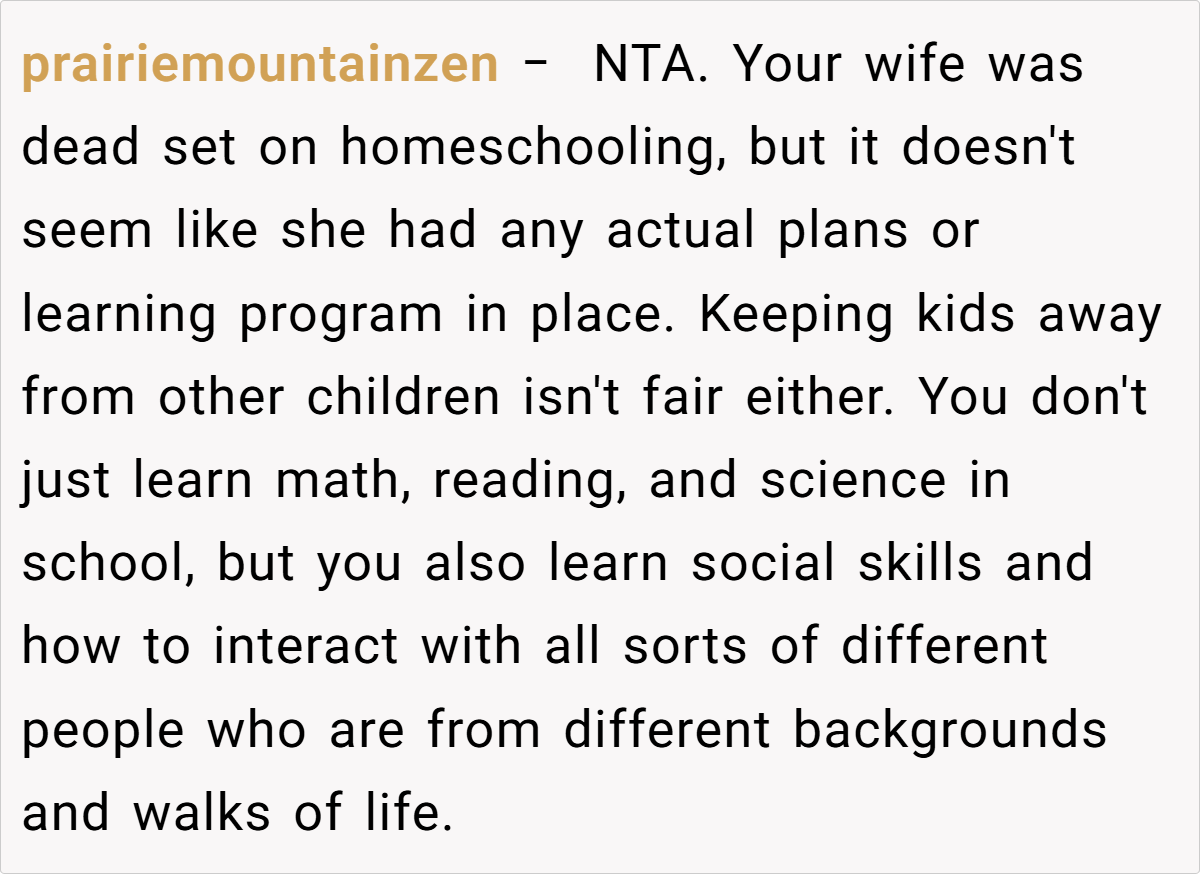
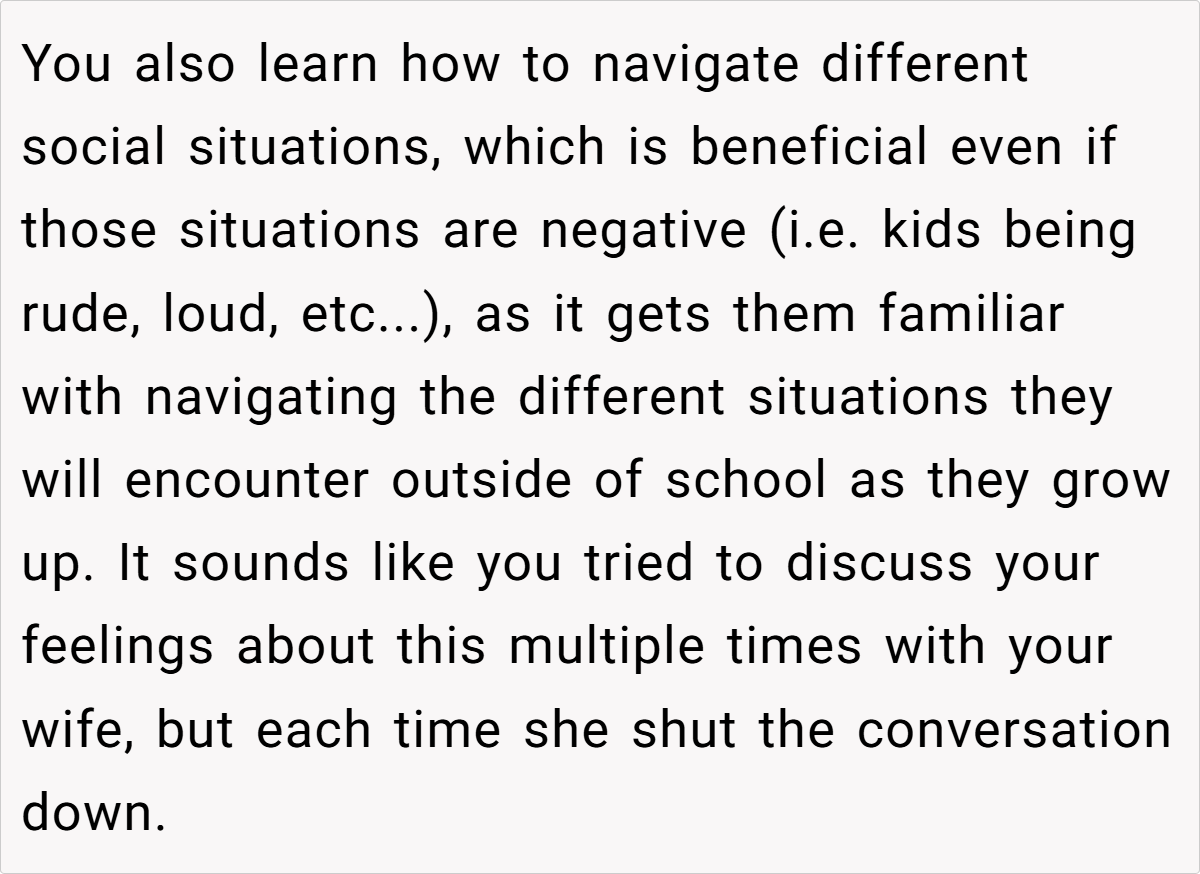
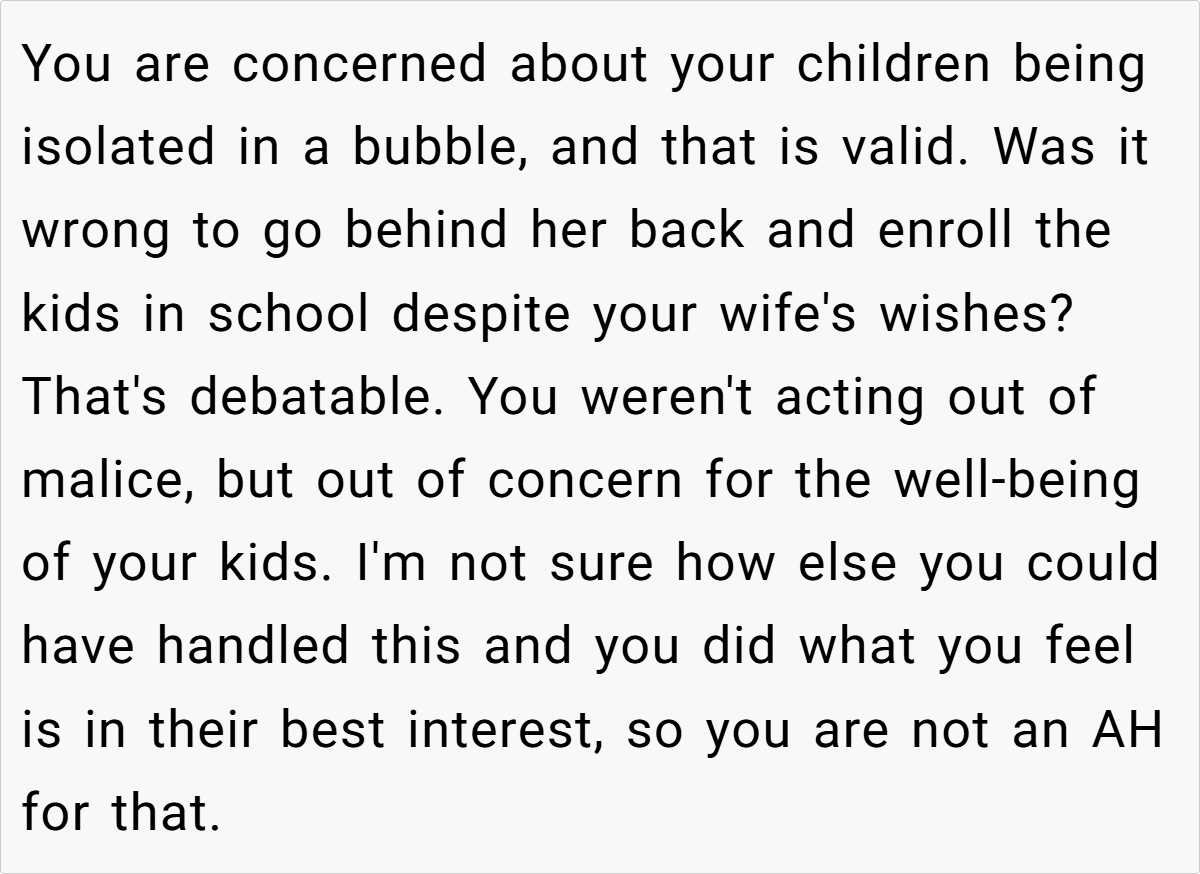
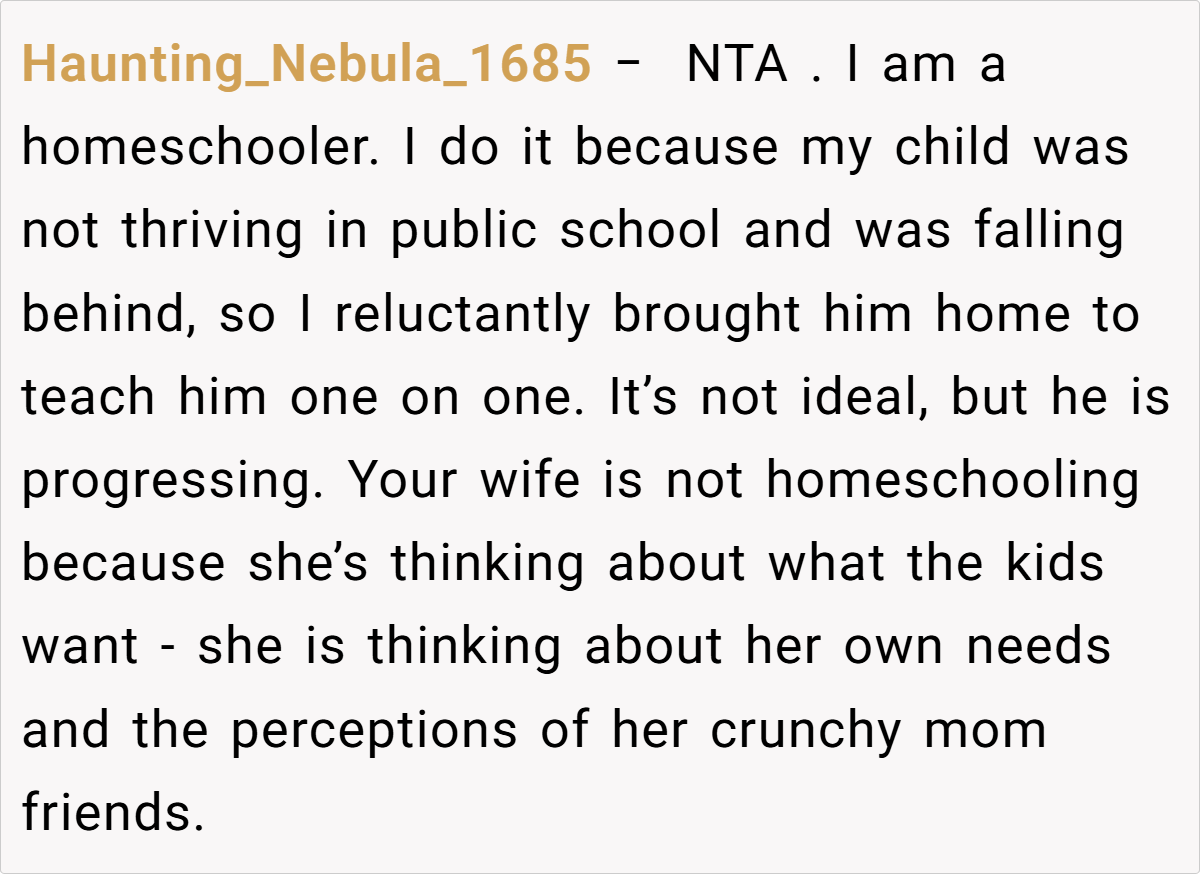
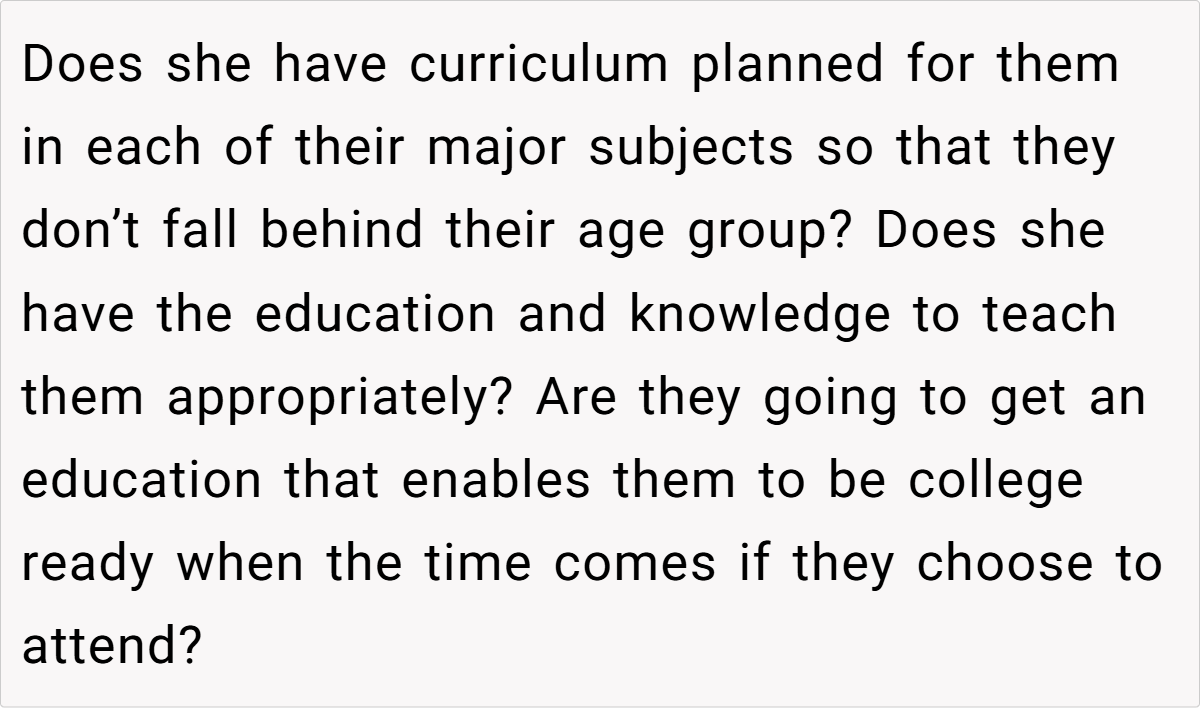
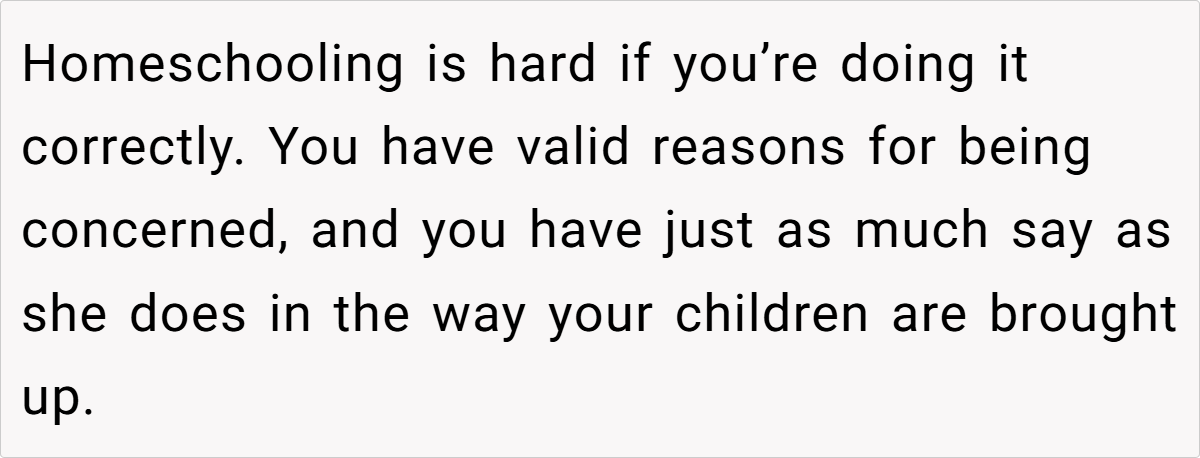
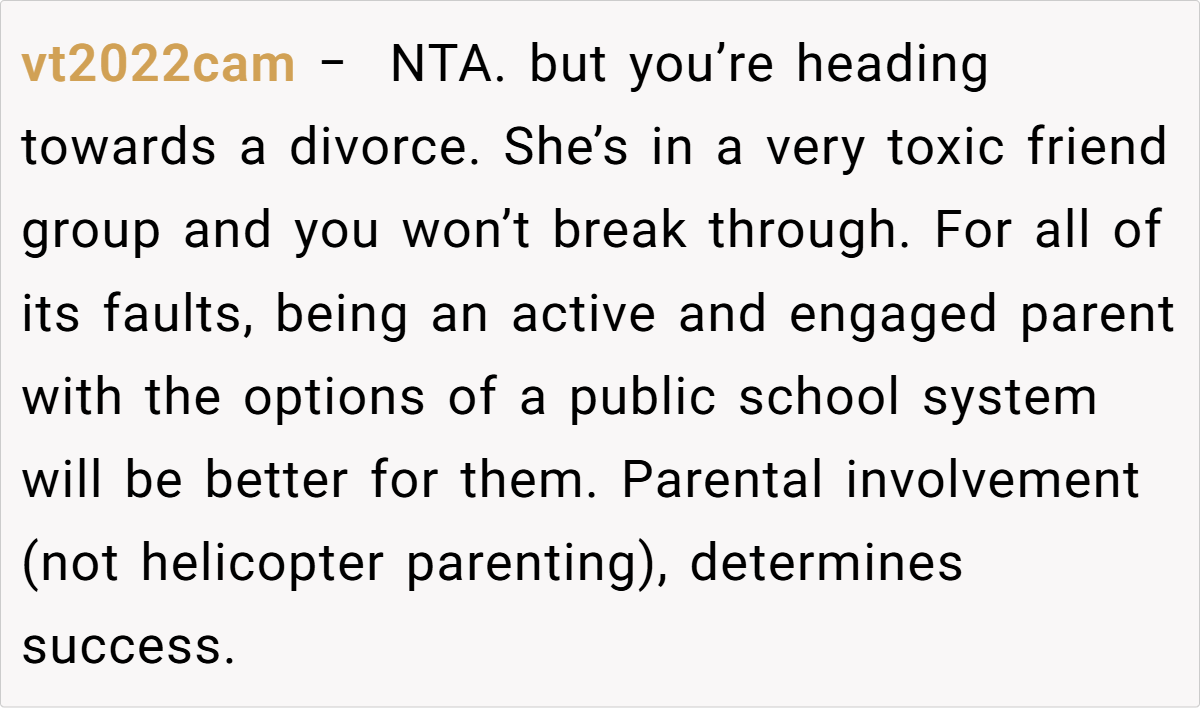
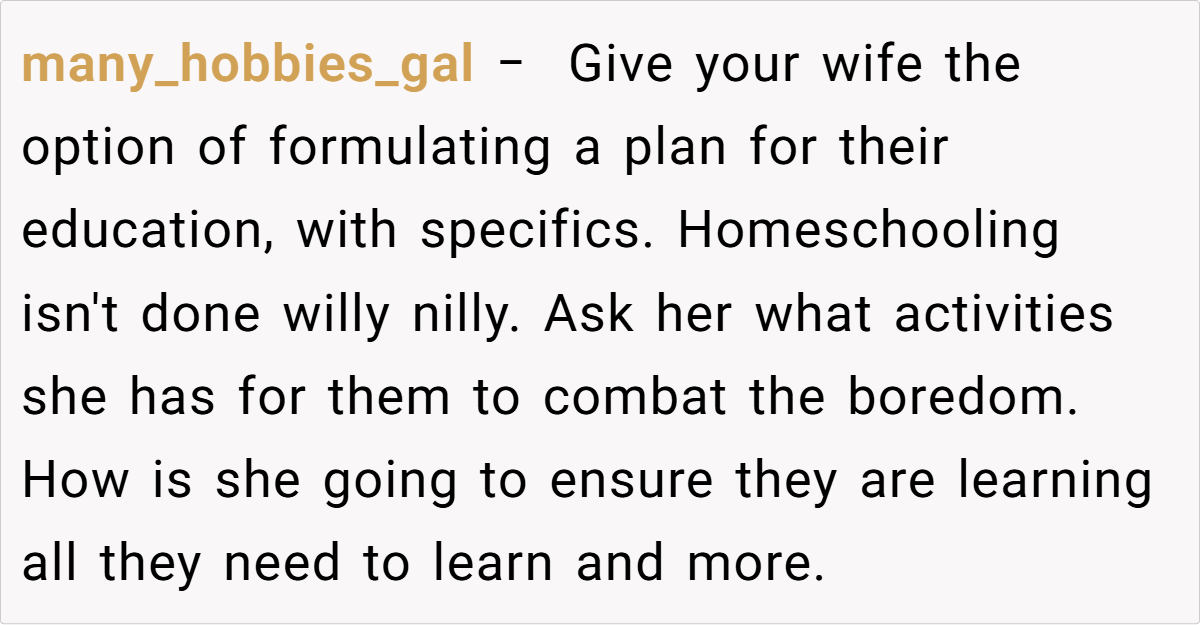
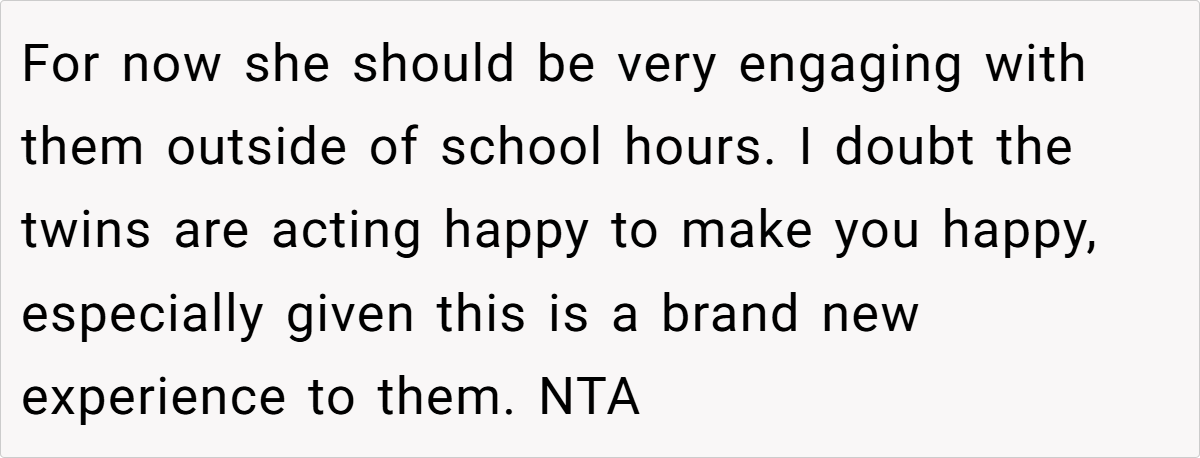
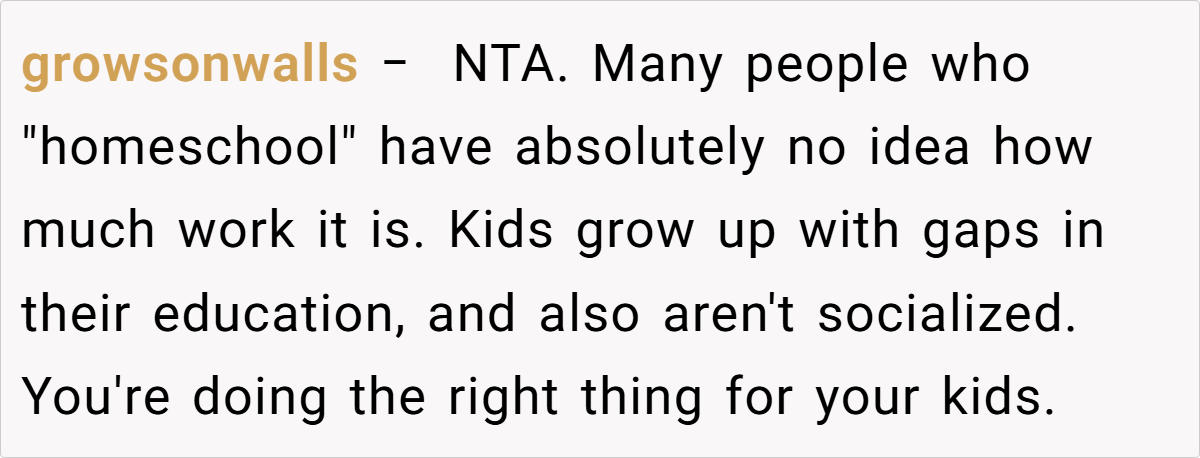
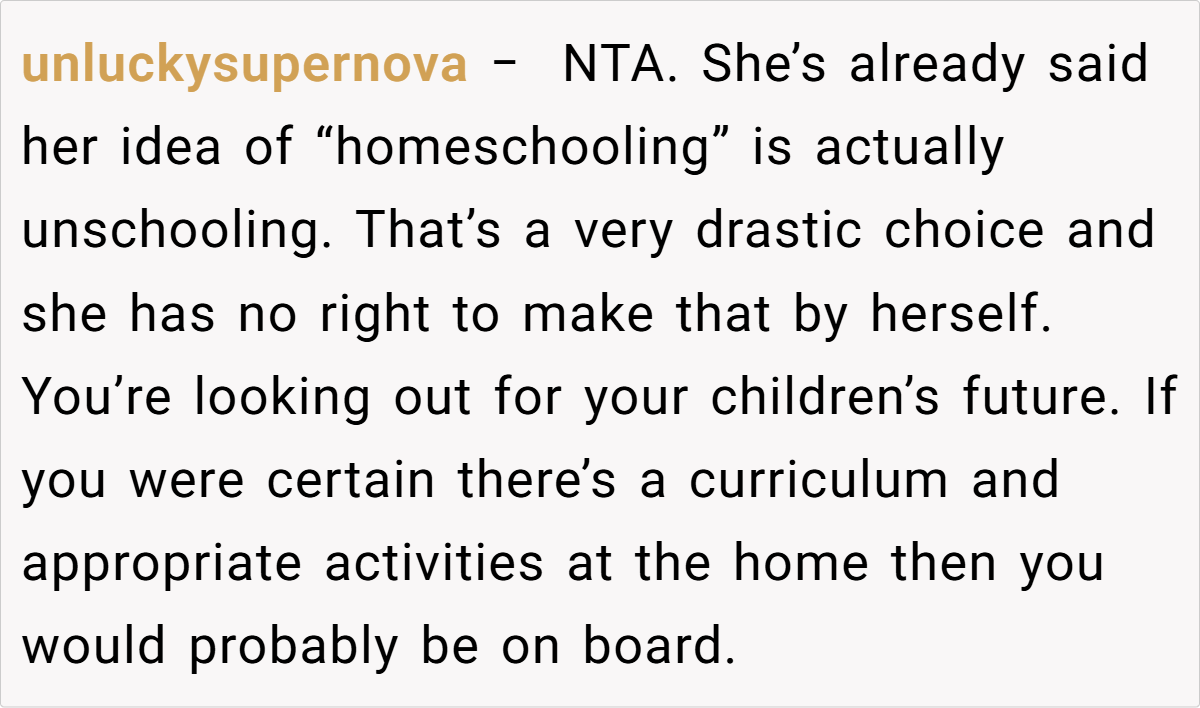
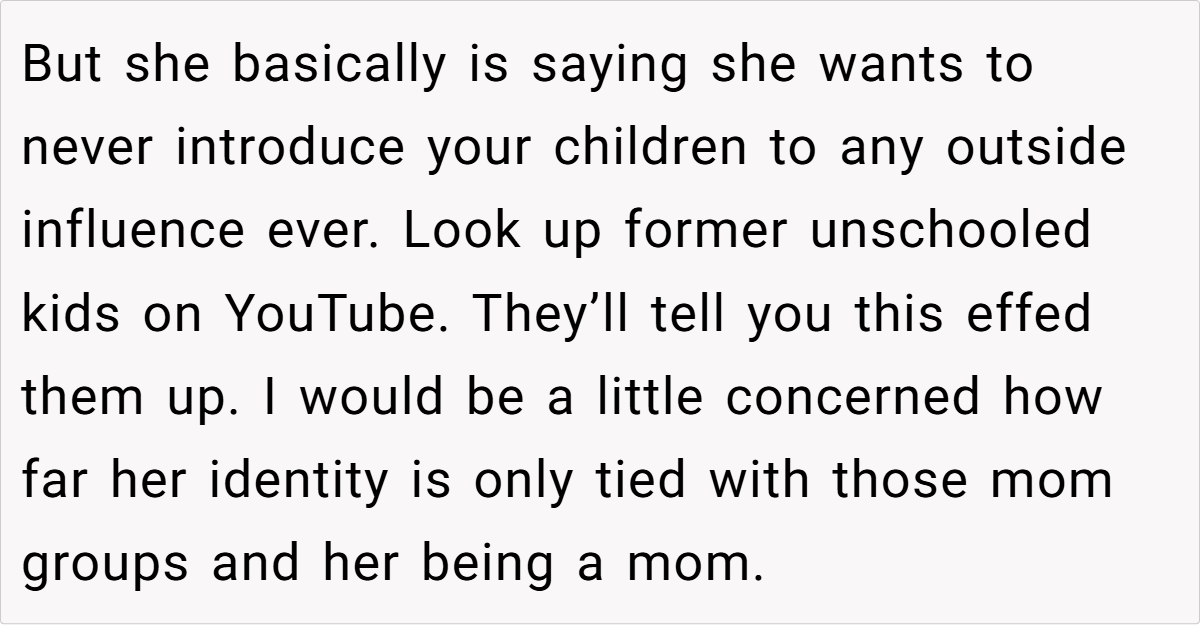
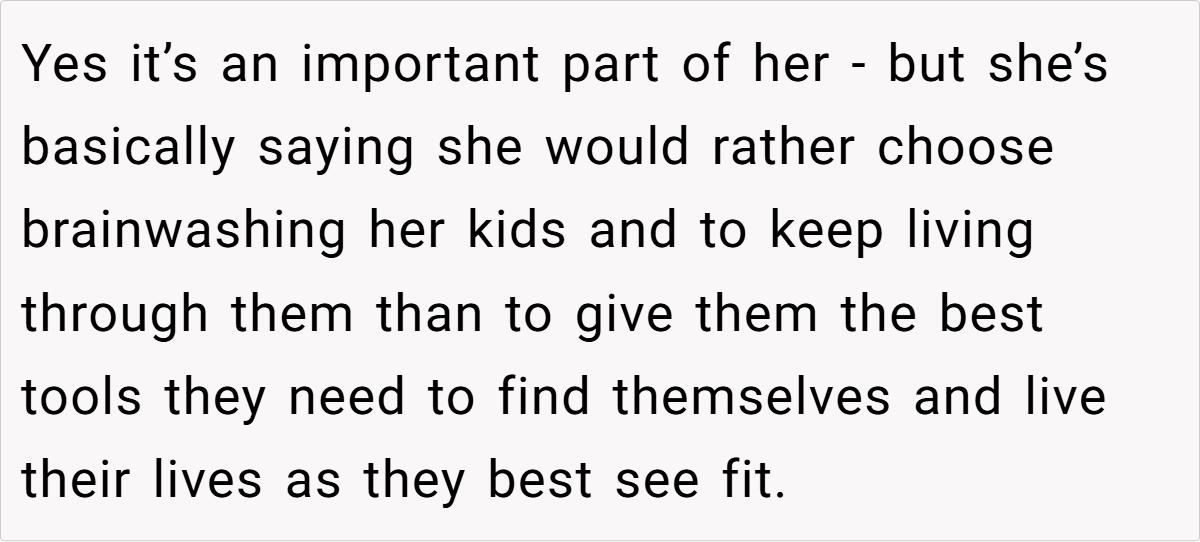
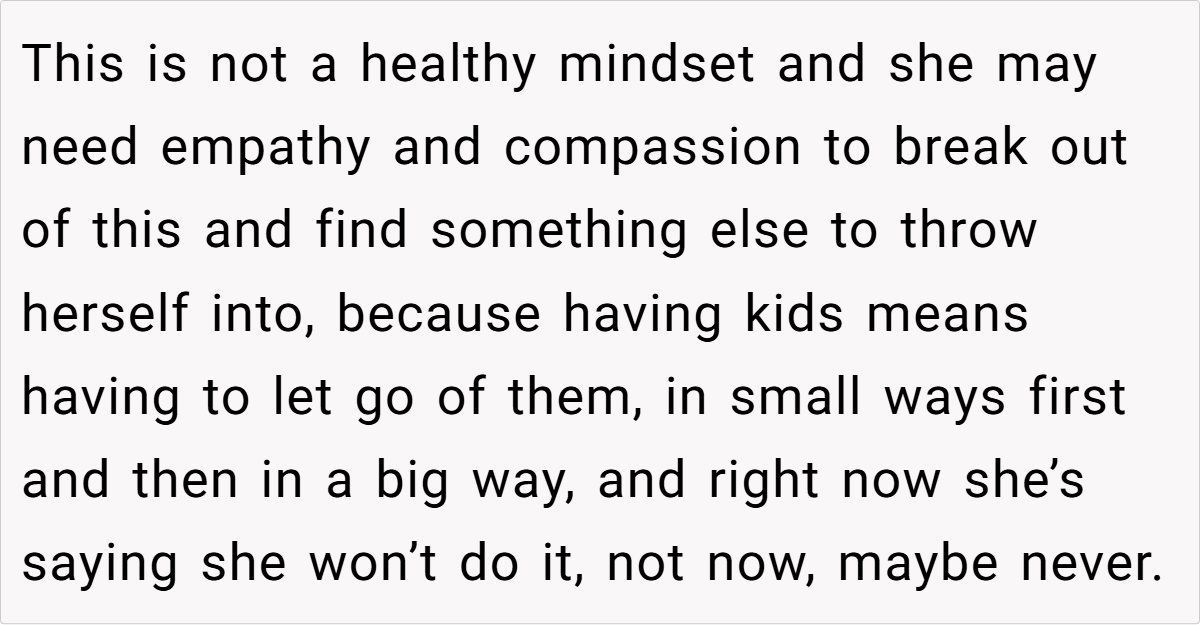
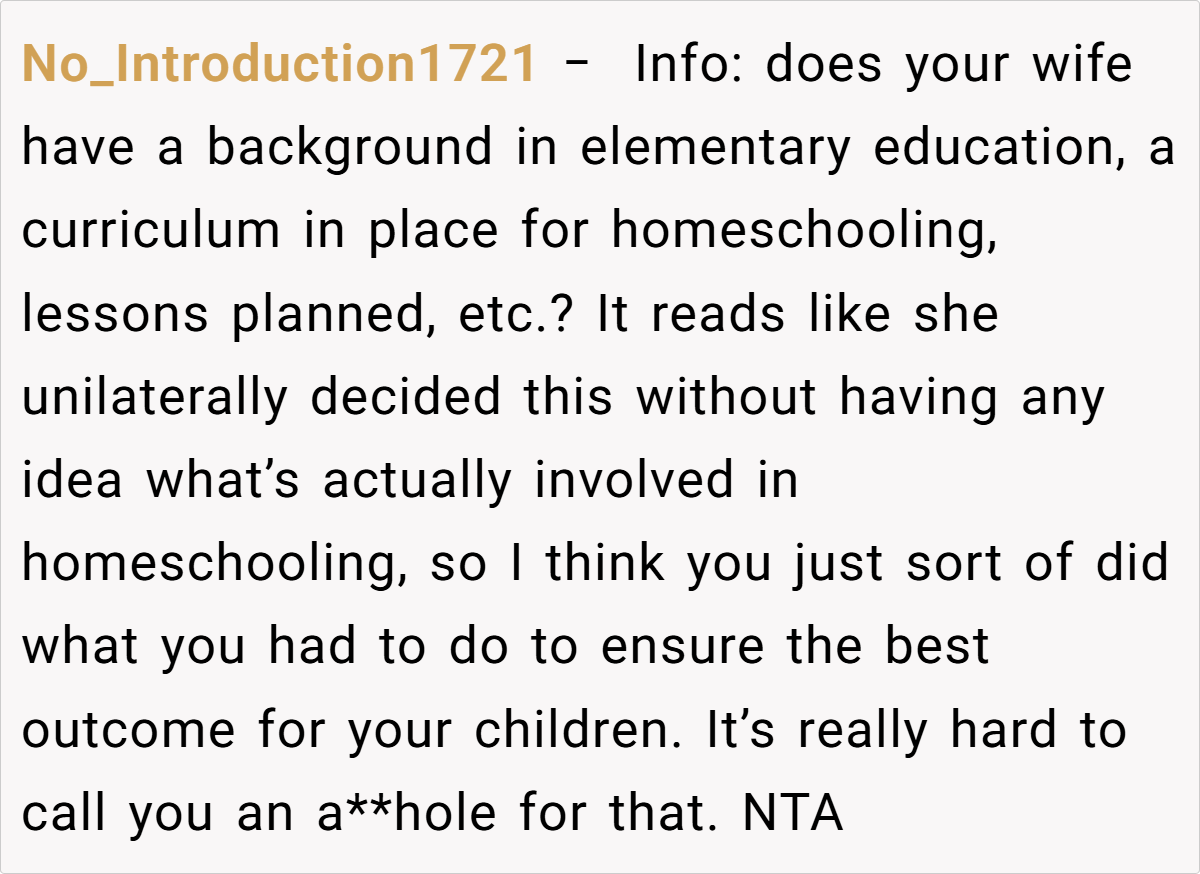
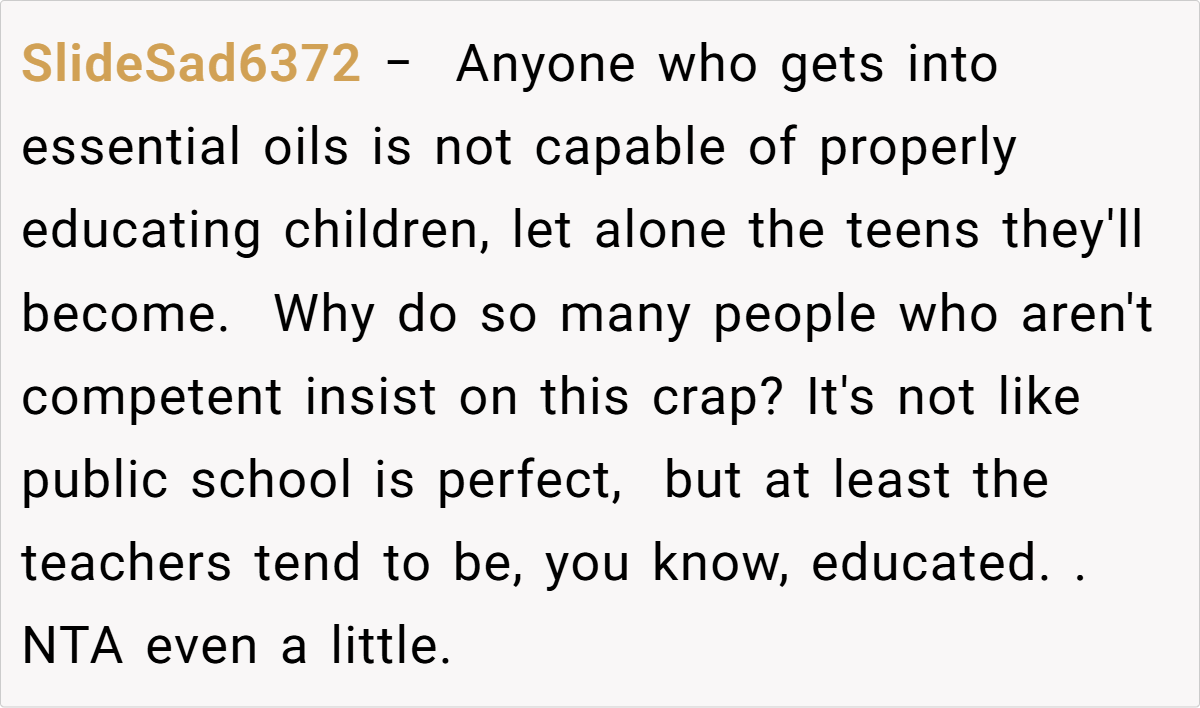
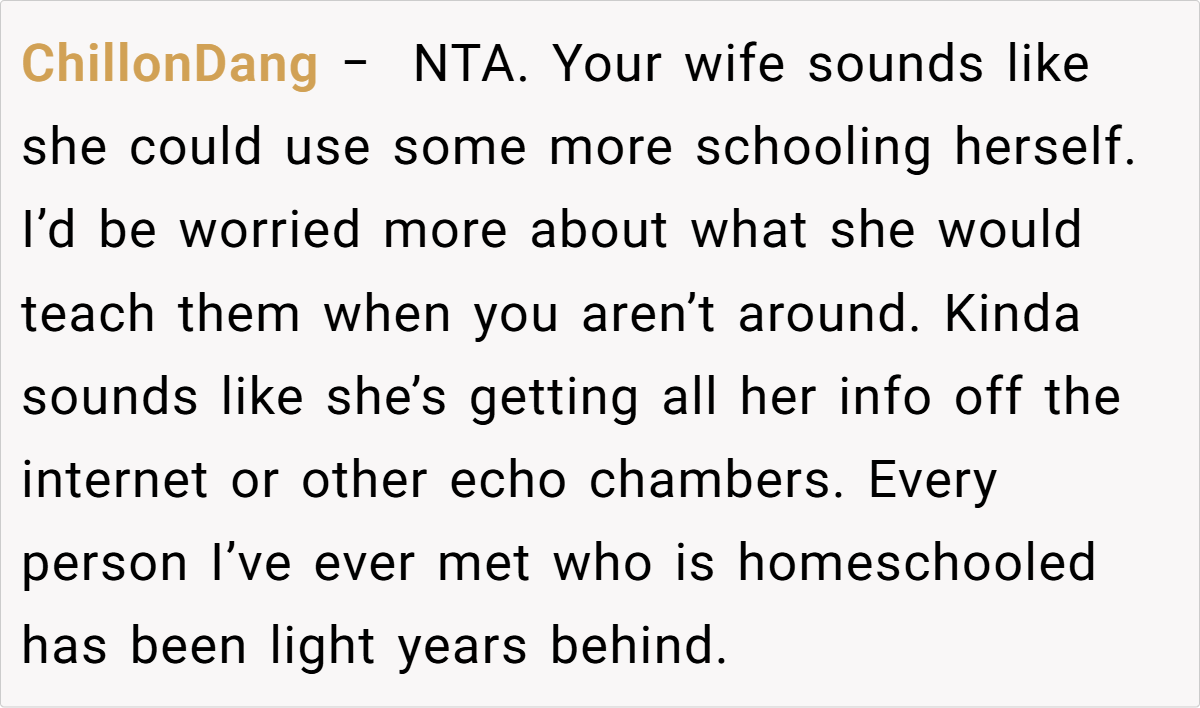
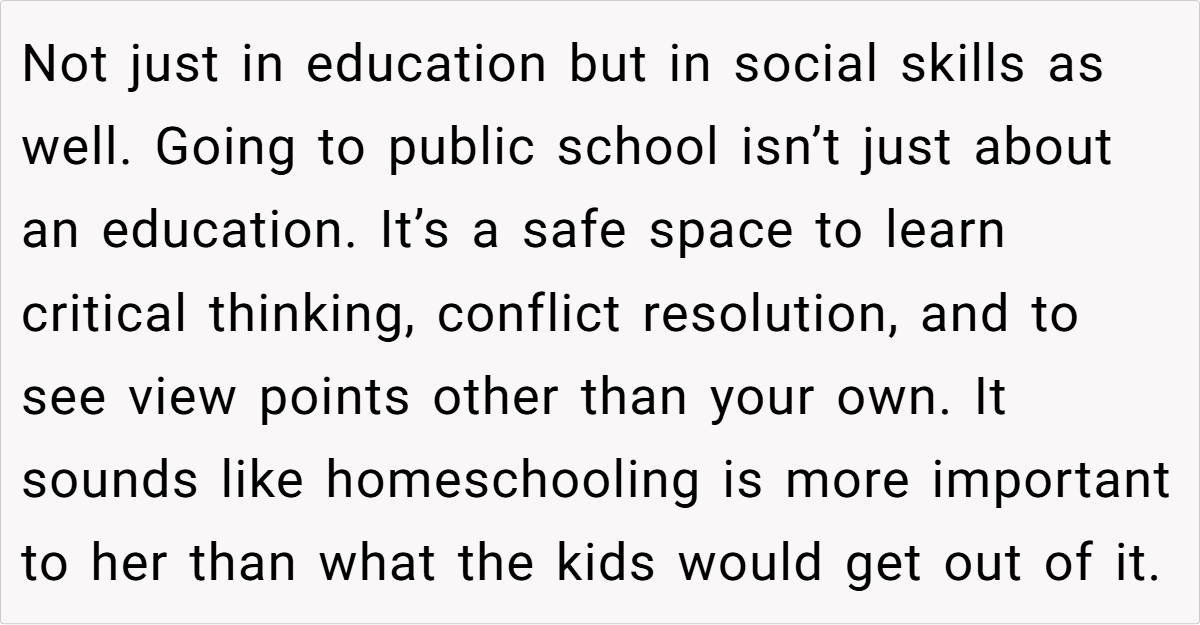
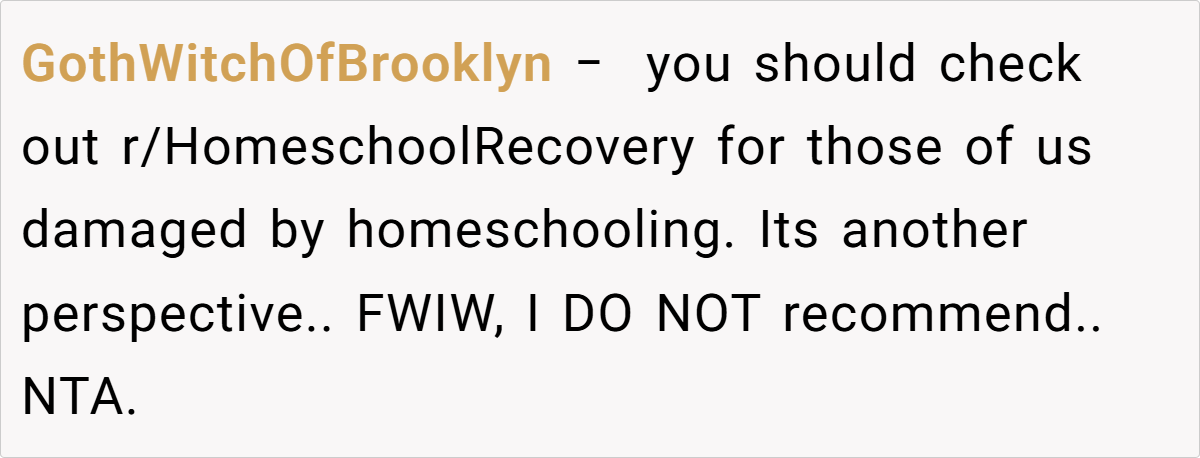
In the end, this situation highlights the complexities of co-parenting when philosophies diverge. While the father’s intentions appear to stem from genuine concern for his children’s educational and social development, the method of implementing his decision has sown discord.
Do you believe that unilateral decisions in parenting can ever be justified for the children’s benefit, or should all major educational choices be a joint effort? Share your thoughts and experiences below—your insights may help others navigate similar challenges in their own families.

